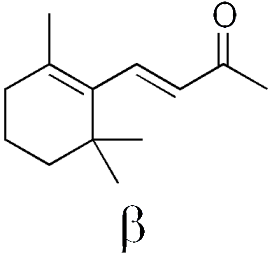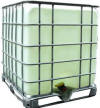 |
Mubychem Group, is a mature manufacturing company since generations. Engaged in manufacture and supply of Beta Ionone, Pharmaceutical Intermediates and Excipients, Fragrances, Oil field & fracturing chemicals, Specialty tailor made grades of chemicals in India. With several manufacturing facilities in India and world wide contacts and toll manufacturers we are exporting to all the countries in the world. |
| The company and associated units have certificates & accreditations like FDA - GMP approval; ISO-9001 Certified; "REACH" Registered; ISO-22000; Kosher Certified; Halal Certified; HACCP. We offer Commercial Pure & Pharmacopoeia IP BP USP FCC Food Grade ACS AR Analytical Reagent Grades of Chemicals | |
Beta Ionone Manufacturers, SDS MSDS Sheet
CAS NO.: 14901-07-6
FORMULA: C13H20O
CHEMICAL NAME: 4-(2,6,6-Trimethyl-1-cyclohexenyl)-3-buten-2-one
SYNONYM: Beta-Ionone; Ionone Beta
MOL. WT.: 192.30
OCCURRENCE: It has been reported as constituent of oil of boronia.
ODOUR: Warm, woody, somewhat dry odor with a fruity undertone.
COLOR & APPEARANCE: Pale yellow liquid.
STABILITY: Stable, not known to cause discoloration.
REFRACTIVE INDEX AT 20C: 1.5190 - 1.5215
ALPHA IONONE CONTENT: Max. 1% by GLC Method
PSEUDO IONONE CONTENT: Max. 0.30% by GLC Method
ACIDITY AS SULPHURIC ACID: Max. 0.05%
PEROXIDE VALUE: Max. 5.0 Mill moles/Kg
MOISTURE CONTENT: Max. 0.1% by KF Method
TOTAL ALCOHOL ETHANOL: Max. 0.5%
TOTAL KETONES AS BETA: Min. 96% (BY GLC Method)
PURITY: Min. 94.1% by U.V.
Application Information: Used in violet accords, but also in woody and fruity fragrances.
Beta Ionone SDS, MSDS Sheet, MATERIAL SAFETY DATA SHEET
1. PRODUCT AND COMPANY IDENTIFICATION
Commercial Name: 4(2,6,6-TRIMETHYL-1-CYCLOHEXEN-1-YL)-3-BUTEN-2-ONE
CAS Number: 14901-07-6
EINECS EC Number: 201-224-3
2. HAZARDS IDENTIFICATION
GHS, Globally Harmonized System Classification in accordance with 29 CFR 1910
Classification according to Regulation (EC) No 1272/2008:
Not a hazardous substance or mixture according to Regulation (EC) No. 1272/2008.
This substance is not classified as dangerous according to Directive 67/548/EEC.
Labeling according to GHS & Regulation (EC) No 1272/2008
GHS Label Elements None |
Signal Word: Warning
Hazards not otherwise classified (HNOC):
May causes mild skin irritation.
May Causes mild eye irritation.
Precautionary statements:
P261: Avoid breathing dust/fume/gas/mist/vapors/spray.
P262: Do not get in eyes, on skin, or on clothing.
P273: Avoid release to the environment.
P281: Use personal protective equipment as required.
P302+P352 - IF ON SKIN: Wash with plenty of soap and water.
P303+P361+P353 - IF ON SKIN (or hair): Remove/Take off immediately all contaminated clothing. Rinse skin with water/shower.
P304 + P340 - IF INHALED: Remove victim to fresh air and keep at rest in a position comfortable for breathing.
P305 + P351 + P338 - IF IN EYES: Rinse cautiously with water for several minutes. Remove contact lenses, if present and easy to do. Continue rinsing.
P337+313: If eye irritation persists get medical advice/attention.
P391: Collect spillage.
P501: Dispose of contents/container in accordance with local/national regulation.
HMIS (Perceived): Health hazard: 0, Flammability: 1, Physical hazards: 0
NFPA (Perceived): Health hazard: 0, Fire: 1, Reactivity Hazard: 0
OSHA Hazards: No known OSHA hazards
To the best of our knowledge the toxicological properties of this material have not been thoroughly investigated.
3. COMPOSITION / INFORMATION ON INGREDIENTS
Chemical Identification: 4(2,6,6-TRIMETHYL-1-CYCLOHEXEN-1-YL)-3-BUTEN-2-ONE
CAS Number: 14901-07-6
EINECS EC Number: 201-224-3
Molecular Wt :- 192.30
Molecular Formula: C13H20O
FEMA No.:- 2595
4. FIRST-AID MEASURES
Always seek medical attention after first aid measures are provided.
Eye Contact: Rinse immediately with plenty of water for 10 minutes at least. Contact a physician if symptoms persist.
Skin Contact: Wash thoroughly with soap and water; flush with plenty of water. Take off spoilt clothes. Contact physician if symptoms persist.
Ingestion: Wash the mouth with water; seek medical advice immediately.
Inhalation: Remove from exposure site to fresh air and keep at rest. Obtain medical advice.
5. FIRE-FIGHTING MEASURES
Extinguishing media Recommended: CO2, foam, dry chemicals.
Non Recommended: Do not use direct water jet on burning material.
Extinguishing Procedure: Closed Beta Ionone containers may build up pressure at elevated temperatures. If possible, containers should be cooled with a water spray.
6. ACCIDENTAL RELEASE MEASURES
Personal Precautions: Use an individual protective equipment (waterproof boots, suitable protective clothing, safety glasses). Prevent any contact with hot surfaces. Do not approach facing the wind.
Environment Precautions: Keep Beta Ionone away from drains, surface and groundwater and soil.
Methods of Clean-up: Contain spilled material. Cover with an inert, non-combustible, inorganic absorbent material, or sweep up, and remove to an approved disposal container. Avoid open flames or other sources of ignition.
7. HANDLING AND STORAGE
Precautions in handling: Apply according to good manufacturing and industrial hygiene practices with proper ventilation. Do not drink, eat or smoke while handling. Respect good personal hygiene.
Storage Conditions: Store in cool, dry and ventilated area away from heat sources and protected from light in tightly closed original container. Keep air contact to a minimum.
Fire Protection; Keep Beta Ionone away from ignition sources and naked flame.
8. EXPOSURE CONTROL
Respiratory Protection: Avoid to breath directly on the product. Apply local ventilations when appropriate.
Ventilation: Ensure good ventilation of the work station.
Hand Protection: Avoid skin contact. Use chemical resistant gloves as needed.
Eye Protection: Use safety glasses.
Work Hygienic Practice: Wash hands with soap and water after handling.
9. PHYSICAL AND CHEMICAL PROPERTIES
Odor: Woody, Fruity, less violet than alpha
Color: Beta Ionone is Pale Yellow to Yellow
Appearance: Clear Mobile Liquid
Flash (C): >100
Boiling Point (C):
Melting Point (C): -53
10. STABILITY AND REACTIVITY
Reactivity: Beta Ionone presents no significant reactivity hazards, by itself or in contact with water. Avoid contact with strong acids, alkali or oxidizers.
Decomposition: Carbon monoxide and unidentified organic compounds may be formed during combustion.
11. TOXICOLOGICAL INFORMATION
Acute Toxicity:
LD50 Oral - rat - 7.120 mg/kg
LD50 Dermal - rat - male and female - > 2.000 mg/kg
Carcinogenicity: IARC: No component of this product present at levels greater than or equal to 0.1% is identified as probable, possible or confirmed human carcinogen by IARC, ACGIH, OSHA and NTP.
12. ECOLOGICAL INFORMATION
Toxicity to fish: LC50 - Pimephales promelas (fathead minnow) - 5,09 mg/l - 96,0 h
Toxicity to daphnia and other aquatic invertebrates: static test EC50 - Daphnia magna (Water flea) - 4,03 mg/l - 48 h
Toxicity to algae: static test EC50 - Desmodesmus subspicatus (green algae) - 22,15 mg/l - 72 h
Toxicity to bacteria: Respiration inhibition EC50 - Sludge Treatment - 100 - 200 mg/l - 180 min
Biodegradability: Readily biodegradable. Prevent contamination of soil and surface water.
Carcinogenicity: No component of this product present at levels greater than or equal to 0.1% is identified as possible or confirmed human carcinogen by IARC, ACGIH, OSHA and NTP.
13. DISPOSAL CONSIDERATIONS
In accordance with local environmental laws. Avoid disposing into drainage systems and into the environment.
14. TRANSPORT REGULATIONS
DOT (USA) & ADR/RID: Not dangerous goods
IMDG: Not dangerous goods
IATA: Not dangerous goods
15. REGULATORY INFORMATION
USA:
OSHA Hazards: No known OSHA hazards
SARA 302: No chemicals in this material are subject to the reporting requirements of SARA Title III, Section 302.
SARA 313: This material does not contain any chemical components with known CAS numbers that exceed the threshold (De Minimis) reporting levels established by SARA Title III, Section 313.
SARA 311/312 Hazards: No SARA Hazards
Massachusetts Right To Know Components: No components are subject to the Massachusetts Right to Know Act.
Pennsylvania Right To Know Components: (E)-4-(2,6,6-Trimethyl-1-cyclohexen-1-yl)-3-buten-2-one, CAS-No. 79-77-6
New Jersey Right To Know Components: (E)-4-(2,6,6-Trimethyl-1-cyclohexen-1-yl)-3-buten-2-one, CAS-No. 79-77-6
California Prop. 65 Components: This product does not contain any chemicals known to State of California to cause cancer, birth defects, or any other reproductive harm.
EINECS EC Number: 201-224-3
16. OTHER INFORMATION
Disclaimer
***************************
Our company provides this Beta Ionone SDS information contained herein in good faith but makes no representation as to its comprehensiveness or accuracy. This Beta Ionone MSDS sheet is intended only as a guide to the appropriate precautionary handling of the material by a properly trained person using this product. Individuals receiving the information must exercise their independent judgment in determining its appropriateness for a particular purpose.
***************************
Beta Ionone manufacturers at:
MUBY CHEMICALS GROUP
DONGRI-CHINCHBUNDER, MUMBAI 400009, INDIA
TEL: (OFFICE) 91-22-23770100, 91-22-23726950, 91-22-23774610, 23723564.
e-mail: info@mubychem.com








